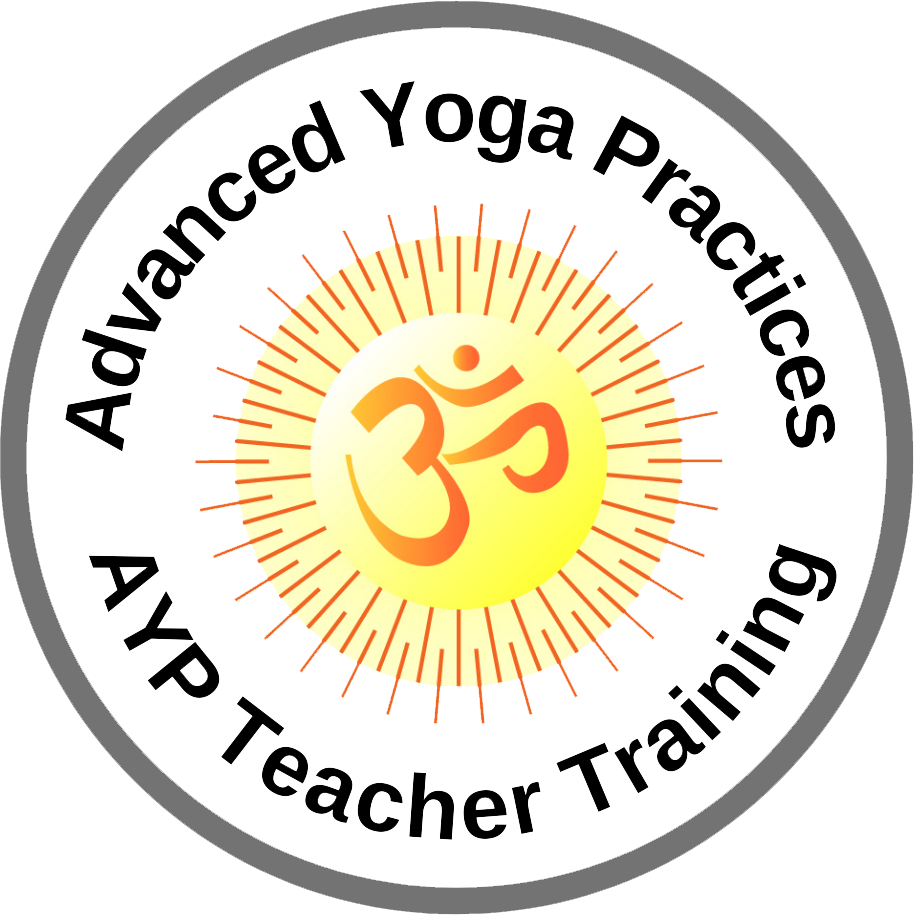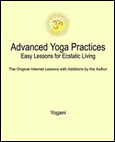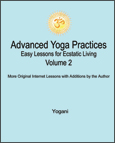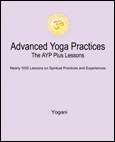|
Public Home | Plus Home | Main Lessons | Tantra Lessons | Public Forum | Plus Forum | Downloads | Books Topic Paths | Search | Training-Retreats | Testimonials | Survey | Interviews | MultiMedia | Contact | Donate |
|
Advanced Yoga Practices Note: For the Original Internet Lessons with additions, see the AYP Easy Lessons Books. For the Expanded and Interactive Internet Lessons, AYP Online Books, Audiobooks and more, see AYP Plus. Lesson 335 - The Role of Desire in Self-Inquiry (Audio)
From: Yogani New Visitors: It is recommended you read from the beginning of the archive, as previous lessons are prerequisite to this one. The first lesson is, "Why This Discussion?"
It has been said that a prerequisite to enlightenment is the end of all desire. This is not entirely true. Without desire there can be no path, and no practice of any kind. Even if we deny the need for practice in favor of stand-alone self-inquiry, a desire for truth will still be necessary to keep us going in that. Desire in relation to the spiritual path is often misunderstood, particularly in the realm of advaita-vedanta (non-duality). As we come into a direct realization of the truth of what we are, it is true that our desire for the ephemeral things of this world will become less. A reduction in this kind of desire is effect rather than cause a tail on the dog of rising realization. Even as our worldly desire may become less, our spiritual desire will be increasing in kind. Exponentially, some might say. So enlightenment is not about ending desire. It is about shifting it naturally to higher truth, until all desire is dissolved in the reality of Oneness, which is experienced as an unending outpouring of divine love. Then our desire has become synonymous with divine desire, and continues on... An intentional desire for the realization of truth is not only useful, it is essential. When desire is directed toward a high ideal of our own choosing, and is sustained, it is called devotion. In the language of yoga, this is called bhakti. We could also call it active surrender, which is the giving of ourselves through our actions to our highest ideal in everyday living. Besides the obvious motivational power of devotion inspiring us to take action on our path toward realization, there is an innate power of transformation in devotion that directly stimulates inner purification and opening, independent of any other action taken on our part. In other words, devotion alone has the power to open us to the truth, assuming the ideal of our devotion reaches beyond where we are today. This natural feature of devotion is why it is the most prevalent spiritual practice in all of the worlds religions. Devotion to a high spiritual ideal (divine personage, icon, condition or concept) is at the core of all spiritual progress, whether additional methods are being applied or not. This is equally true on the path of self-inquiry leading to direct realization of non-duality unity. Of course, as soon as we begin integrating additional effective methods with our spiritual desire, our rate of transformation to realization will be accelerating. In fact, it is devotion that leads us to all additional means. Devotion increases the effectiveness of all means we undertake, whether it be deep meditation, self-inquiry, or any other spiritual practice. So, even if we are highly orthodox in our approach to self-inquiry, denying other forms of practice in favor of a singular focus on non-duality, we cannot deny that it is our desire that is carrying us forward, raised to the level of unending devotion to our highest ideal (bhakti). In the absolutist advaita-vedanta traditions, the words "desire," "devotion" and "bhakti" are seldom included in the vernacular. Instead, the qualities of unwavering "integrity," "commitment," "fidelity," "earnestness," etc., are used to describe that essential constituent of the path. It is the same thing. Without it, self-inquiry will be hollow. Fortunately, having that essential fire in the heart is an aspect of the rise of the witness, and this is why we place emphasis on relational self-inquiry (see Lesson 325). The presence of the abiding witness brings along with it all the prerequisites for effective self-inquiry, including an ever-expanding flow of spiritual desire. There is something that is leading us to the ultimate freedom of the realization of our non-dual nature. That something is desire, raised to the level of devotion (bhakti). It is the unifying power of divine love emanating from our stillness, leading us to all actions that unfold the living truth within us. In upcoming lessons, we will be taking a closer look at how bhakti fuels our actions on the path and our spiritual evolution. The guru is in you. Discuss this Lesson in the AYP Plus Support Forum Note: For detailed discussion on the role of rising bhakti in self-inquiry, see the Self-Inquiry book and the Liberation book. For detailed discussion on the intensification of bhakti as we progress on our path, see the Bhakti and Karma Yoga book. Also see AYP Plus. |
|
|

























